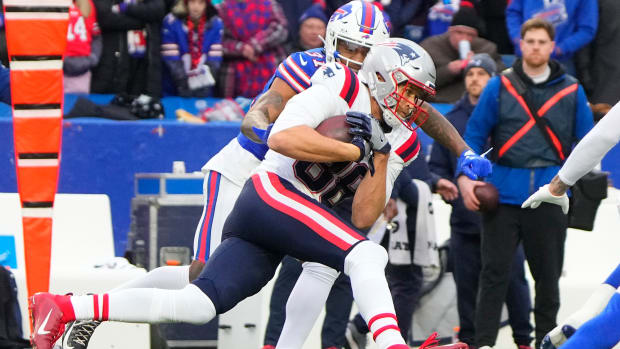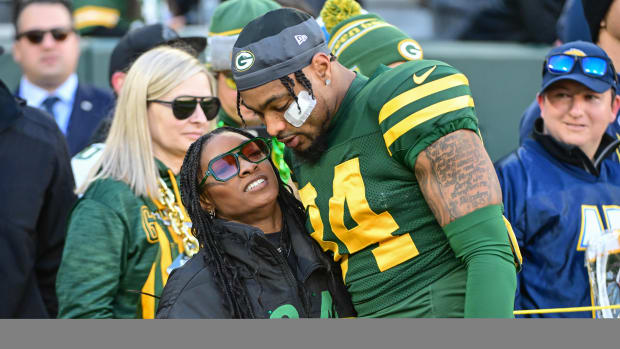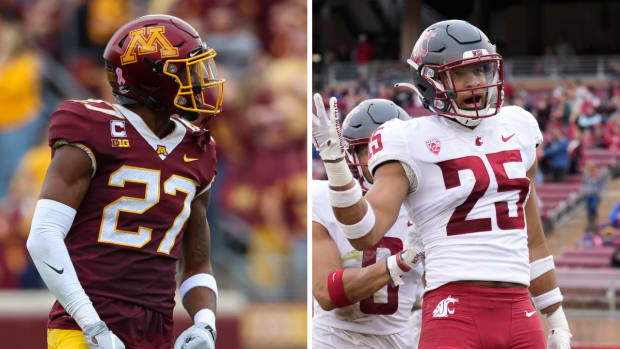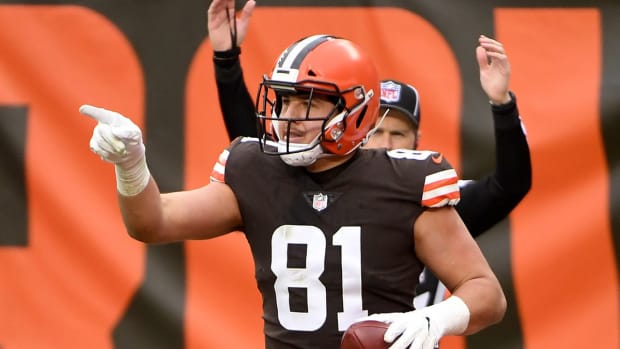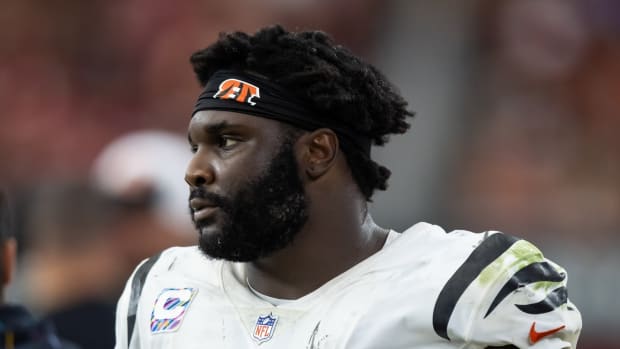Joe Judge Built His Program on Accountability, So What Happens When the Mistakes Are His?
The Joe Judge era reached a crossroads following Thursday night’s loss to Washington, a game that hinged on a special teams penalty that allowed Dustin Hopkins to get five yards closer for a game-winning field goal.
Through the ebbs and flows of a season, so many of these changes in fortune, both positive and negative, build atop one another to ultimately craft a given year’s narrative. A stretch of solid play can make disappointments like that vanish. A longer stretch of disappointments can make you the Jets or the Lions.
The problem, for Judge specifically, is that when you’ve built a training camp and a program on the idea of perfection, a noticeable lack thereof begins to reflect on your methodology as a leader—especially when some of the most visible errors are those made directly by the coach and his staff. Judge is one of the most prominent young coaches who have attempted to run a throwback operation built on punishment-based accountability. But given that it would look quite ridiculous for Judge to make himself run laps, it’s hard for the coaches to hold themselves to the same standard.
On Thursday, the Giants lost a game on a special teams penalty. Their head coach made his name as a special teams coordinator. The team also committed four false start penalties, one of which pushed it out of field goal range, and don’t forget the touchdown nullified by a penalty. Judge mismanaged the clock on several occasions and his team appeared to be lined up incorrectly, or at least in disadvantageous situations, even after long stoppages. Offensive coordinator Jason Garrett ran the same broken sweep play that Kadarius Toney took for a significant loss in the season opener, only this time with Sterling Shepard, for a loss of nine yards. On both occasions, the play directed the sweeping wideout directly into the arms of an elite defensive end who should have been accounted for in the protection.
In Week 1, Judge challenged a scoring play, which was automatically reviewable, and the blunder cost his team a timeout. After the game he said, “I know you can't challenge a scoring play. That was a little bit more of an emotional … I was looking for feedback from the officials.”
An “emotional” mistake. Again we ask, lap time for Judge?
During his first training camp, many a swooning feature story was written about the laps he was forcing players to run. In East Rutherford, ever since the end of the Tom Coughlin era, there has been this unspoken longing for the return of some faux militaristic perfectionism. There is no doubt the fan base has a type, and Judge had a below-average roster playing slightly above capabilities.
Judge upped the ante in his second season with a notably performative accountability session that featured 100-yard “wind sprints” (which we put in quotation marks, as it began to take on the intensity of a postworkout cool-down jog) and sets of 30 push-ups after a fight broke out at practice. It was telling that Jets coach Robert Saleh, despite being just a few months into his job as head coach, weighed in when asked about the moment a day later.
“For me, it’s more about creating accountability with self rather than forcing accountability,” he said. “These players are grown men.”
For the moment, we won’t speculate on whether these kinds of gestures during camp wore on the players. There is little doubt frustration is percolating inside the building. Rookie Kadarius Toney voiced his frustrations on Instagram after the loss to Washington. Kenny Golladay was visibly upset with Daniel Jones during the game.
In Judge’s defense, we are nitpicking a little bit. But do you think no one else feels the same way? If a player is scolded for his mistakes in a somewhat performative fashion, doesn’t that anger and desire for the coaches to be held accountable bounce back twofold? Don’t you think they’ll begin to question the process if they’re still making the same mistakes they would have made without the laps? This is no different than the way we were critical of Pete Carroll, a supposed master of zen and general good vibes, when the entire Legion of Boom melted down, tearing the team in half and clipping a dynasty before it had the chance to take flight. This is no different than the pitchforks that came out for Rex Ryan, the ultimate players’ coach, when favoritism and a lack of understanding of the team’s chemistry shuttered a run after back-to-back AFC championship game appearances.
In Mother Night, Kurt Vonnegut wrote: “We are what we pretend to be, so we must be careful about what we pretend to be.” The Giants are far from perfect right now. And far from disciplined. That falls on Judge and, perhaps, the ways in which he hopes to get there.
More NFL Coverage:
• MAQB: What Jameis Winston Learned From Drew Brees
• MMQB: Jimmy Garoppolo Has Learned to Live With His Unusual Situation
• Week 1 Takeaways: More Mahomes Magic
• Patrick Graham Is Creating a Defensive Masterpiece

































